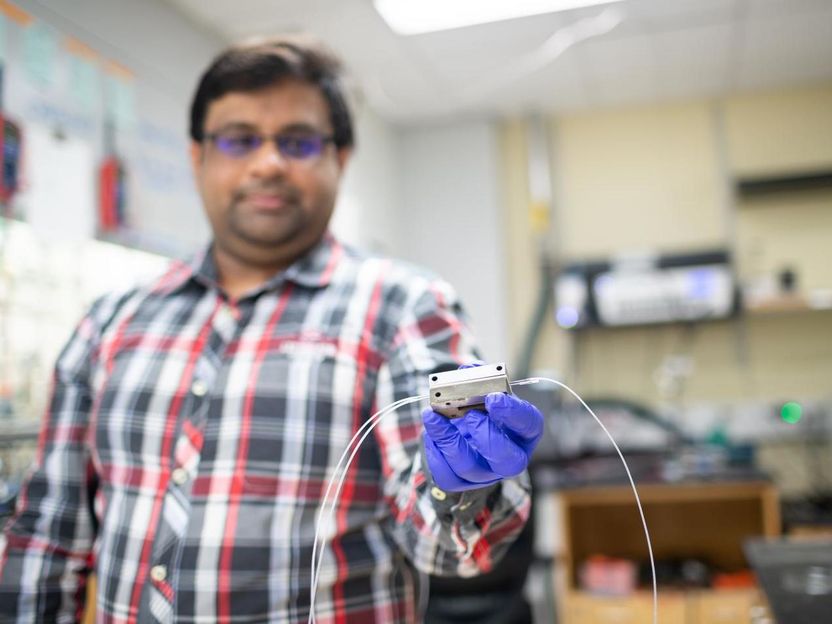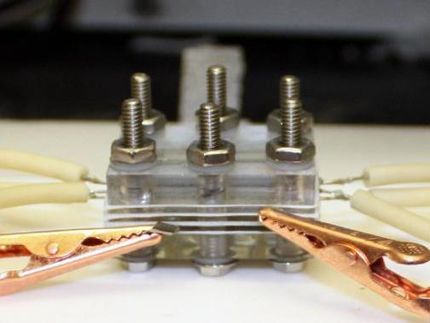Scientists intensify electrolysis, utilize carbon dioxide more efficiently with magnets
"Our ultimate goal is to transform carbon dioxide back into carbon-based chemicals"
Advertisement
For decades, researchers have been working toward mitigating excess atmospheric carbon dioxide (CO2) emissions. One promising approach captures atmospheric CO2 and then, through CO2 electrolysis, converts it into value-added chemicals and intermediates--like ethanol, ethylene, and other useful chemicals. While significant research has been devoted to improving the rate and selectivity of CO2 electrolysis, reducing the energy consumption of this high-power process has been underexplored.

Chemical and biomolecular engineering graduate student Saket Bhargava holds a flow electrolysis cell.
University of Illinois/Claire Benjamin
In ACS Energy Letters, researchers from the University of Illinois Urbana-Champaign report a new opportunity to use magnetism to reduce the energy required for CO2 electrolysis by up to 60% in a flow electrolyzer.
In a typical CO2 flow electrolyzer, electricity is supplied to drive the reactions at the cathode (where carbon dioxide is reduced into useful byproducts) and the anode (where water is oxidized, producing oxygen).
Most studies have focused on making the reduction reaction at the cathode more efficient at higher rates; however, this process requires little energy compared to the oxidation reaction on the anode--which often accounts for more than 80% of the energy required for CO2 electrolysis, and therefore, offers the most room for improvement.
"The answer was staring us right in the face--of course, the trick is to reduce the energy consumption at the anode," said first-author Saket S. Bhargava, a graduate student in chemical and biomolecular engineering at Illinois. "We decided that if oxygen evolution is the problem, why not use a magnetic field at the oxygen evolving electrode and see what happens to the entire system."
They used a magnetic field at the anode to achieve energy savings ranging from 7% to 64% by enhancing mass transport to/from the electrode. They also swapped the traditional iridium catalyst--a precious metal--with a nickel-iron catalyst comprised of abundant elements.
"Our ultimate goal is to transform carbon dioxide back into carbon-based chemicals," said lead author Paul Kenis, a chemical and biomolecular engineering professor and department head at Illinois. "With this study, we have demonstrated how further to reduce the significant energy requirements for CO2 electrolysis, hopefully making this process more viable for adoption by industry."

























































